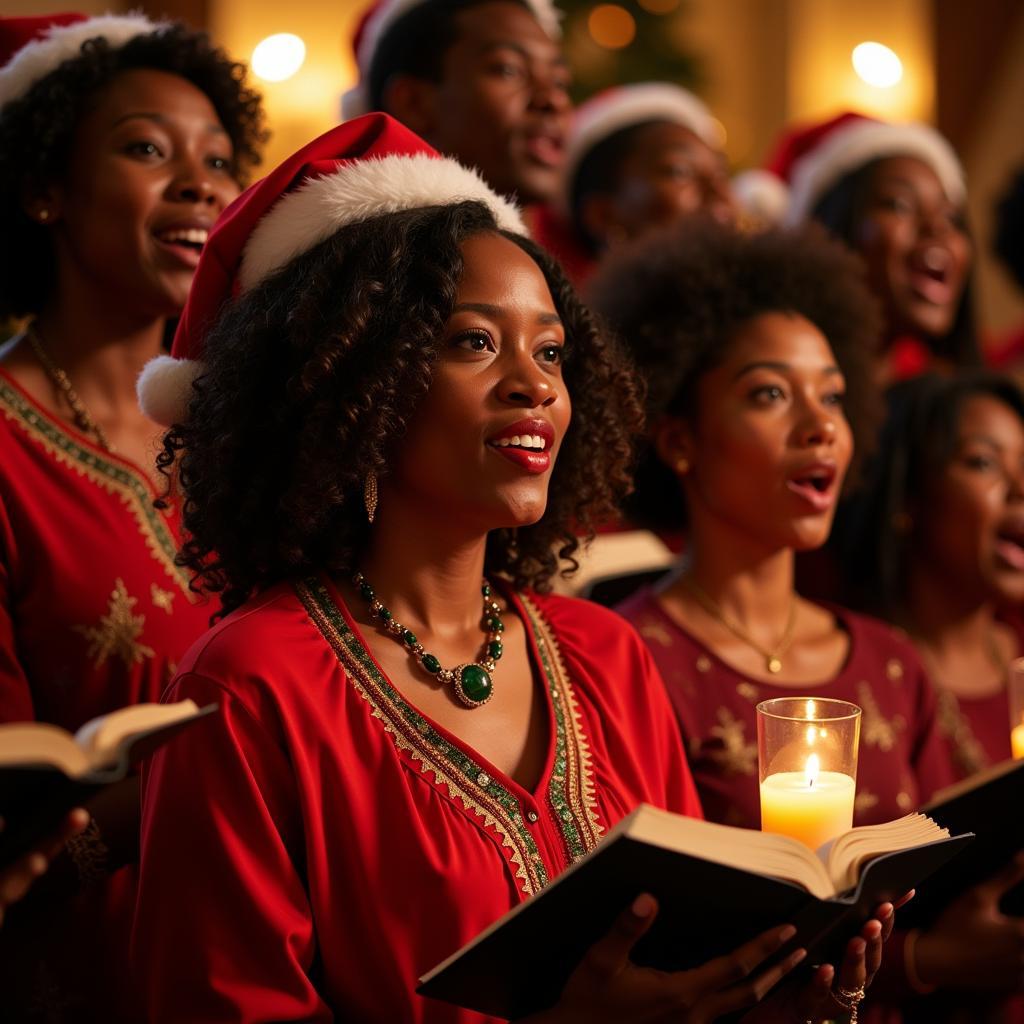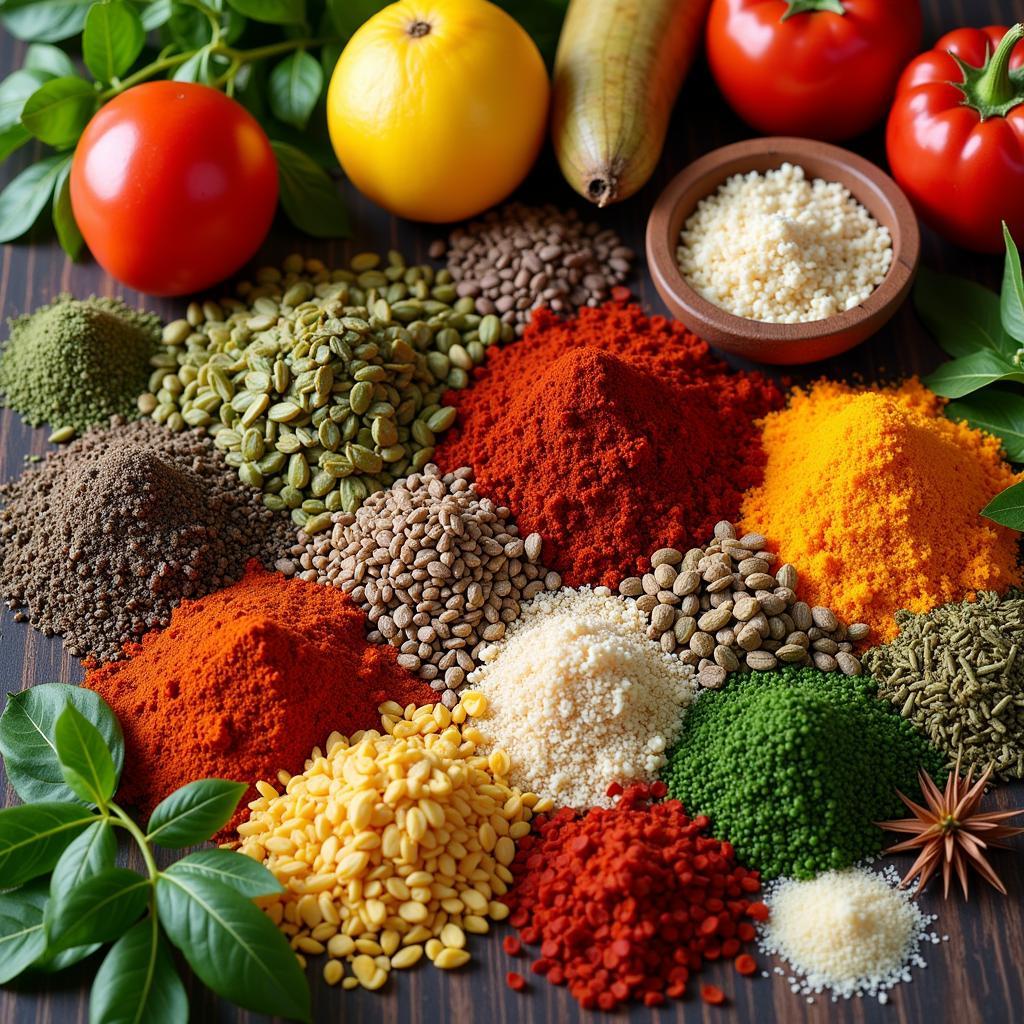Exploring the Rich Tapestry of African American Cultural Traditions
African American Cultural Traditions represent a vibrant blend of African heritage and unique experiences forged in the United States. This rich cultural tapestry encompasses a wide range of expressions, from music and dance to food, language, and spiritual beliefs. Understanding these traditions provides invaluable insight into the heart and soul of African American identity.
The Enduring Influence of African Heritage
African roots run deep within African American culture, shaping many traditions still practiced today. While the transatlantic slave trade tragically severed millions from their homelands, it couldn’t erase the cultural memory carried across the ocean.
Music and Dance: Echoes of Ancestral Rhythms
Music and dance have always been integral to African culture, serving as a means of storytelling, celebration, and spiritual expression. These traditions found new life in America, evolving into distinct forms like blues, jazz, and gospel music, all infused with African rhythmic sensibilities and call-and-response patterns.
Similarly, dance forms like stepping and ring shout, with their emphasis on improvisation and percussive movements, directly connect to West African dance traditions. These art forms aren’t mere entertainment; they represent a powerful connection to ancestral heritage and a testament to resilience in the face of adversity.
Oral Traditions and Storytelling: Passing Down Legacy
Oral traditions, particularly storytelling, have played a crucial role in preserving African culture and history. Folktales, often featuring trickster characters like Anansi the Spider, originated in West Africa and traveled with enslaved Africans to the Americas. These stories, passed down through generations, not only entertained but also imparted moral lessons, cultural values, and a sense of shared history.
 African American Storytelling
African American Storytelling
In the United States, these storytelling traditions evolved, incorporating elements of African American vernacular English and addressing the realities of life under slavery and segregation. This powerful blend of storytelling and social commentary is evident in the works of renowned African American authors like Zora Neale Hurston and Toni Morrison.
Religion and Spirituality: Finding Strength and Solace
Religion has always been a cornerstone of African American life, providing solace, strength, and a sense of community. During slavery, Christianity offered hope and a promise of liberation, though often interpreted and practiced differently from white slave owners.
The Rise of the Black Church: A Pillar of the Community
The Black church emerged as a central institution within African American communities, serving not only as a place of worship but also as a center for education, political activism, and social support. Gospel music, with its roots in spirituals and its message of hope and resilience, became an integral part of the Black church experience.
african american happy birthday
Beyond Christianity, many African Americans retained elements of their traditional African religions, often blending them with Christian beliefs. These practices, sometimes referred to as Hoodoo or rootwork, emphasized healing, spiritual connection, and a reverence for ancestors.
Foodways: A Delicious Fusion of Cultures
Food is another powerful expression of African American culture. Soul food, known for its rich flavors and hearty dishes, reflects the ingenuity and resourcefulness of African Americans who transformed humble ingredients into culinary delights.
From Gumbo to Collard Greens: A Culinary Journey
Dishes like gumbo, with its roots in West African cooking, showcase the fusion of African, Caribbean, and Southern culinary traditions. Similarly, the use of ingredients like okra, black-eyed peas, and sweet potatoes reflects African crops that adapted to the Southern climate and became staples in African American cuisine.
 African American Family Meal
African American Family Meal
These foodways are more than just recipes; they represent a tangible link to the past, a celebration of heritage, and a source of comfort and connection passed down through generations.
Language: Crafting a Unique Voice
Just as food, music, and religion reflect a fusion of influences, so too does African American Vernacular English (AAVE). This dialect, often mischaracterized as incorrect English, has its own distinct grammar, pronunciation, and vocabulary, reflecting the creative adaptation of language in the context of cultural and social isolation.
AAVE is far more than slang; it’s a complex and nuanced linguistic system that reflects the history, resilience, and creative spirit of African Americans. It’s a powerful tool for self-expression, cultural identity, and community building.
The Continued Evolution of Tradition
African American cultural traditions continue to evolve, adapting to contemporary influences while remaining deeply rooted in a rich and complex history. From the global popularity of hip-hop music, with its roots in 1970s Bronx block parties, to the resurgence of interest in natural hair care practices, African American culture continues to shape and be shaped by the world around it.
Understanding and appreciating these traditions is not just about acknowledging the past; it’s about recognizing the vibrant cultural legacy that continues to thrive and inspire, enriching the tapestry of American society and beyond.
FAQ: Delving Deeper into African American Culture
1. What are some key holidays celebrated in African American culture?
Beyond widely celebrated holidays like Christmas and Easter, African Americans observe Juneteenth, marking the emancipation of enslaved people in the United States, and Kwanzaa, a week-long celebration of African heritage and culture.
2. How has African American art influenced broader American culture?
From the Harlem Renaissance to the Black Arts Movement, African American artists have consistently pushed creative boundaries, shaping American art, literature, music, and dance. Think of the impact of artists like Jacob Lawrence, August Wilson, and Alvin Ailey.
3. What are some resources for further exploration of African American history and culture?
Numerous museums, cultural centers, and online resources are dedicated to showcasing the richness of African American culture. The National Museum of African American History and Culture in Washington D.C., the Studio Museum in Harlem, and the Schomburg Center for Research in Black Culture are excellent starting points.
Seeking More Insights?
For a deeper dive into specific aspects of African American culture, explore these related articles:
Need Assistance?
Contact us at:
Phone Number: +255768904061
Email: kaka.mag@gmail.com
Or visit us at:
Mbarali DC Mawindi, Kangaga, Tanzania.
Our dedicated customer support team is available 24/7 to assist you.



